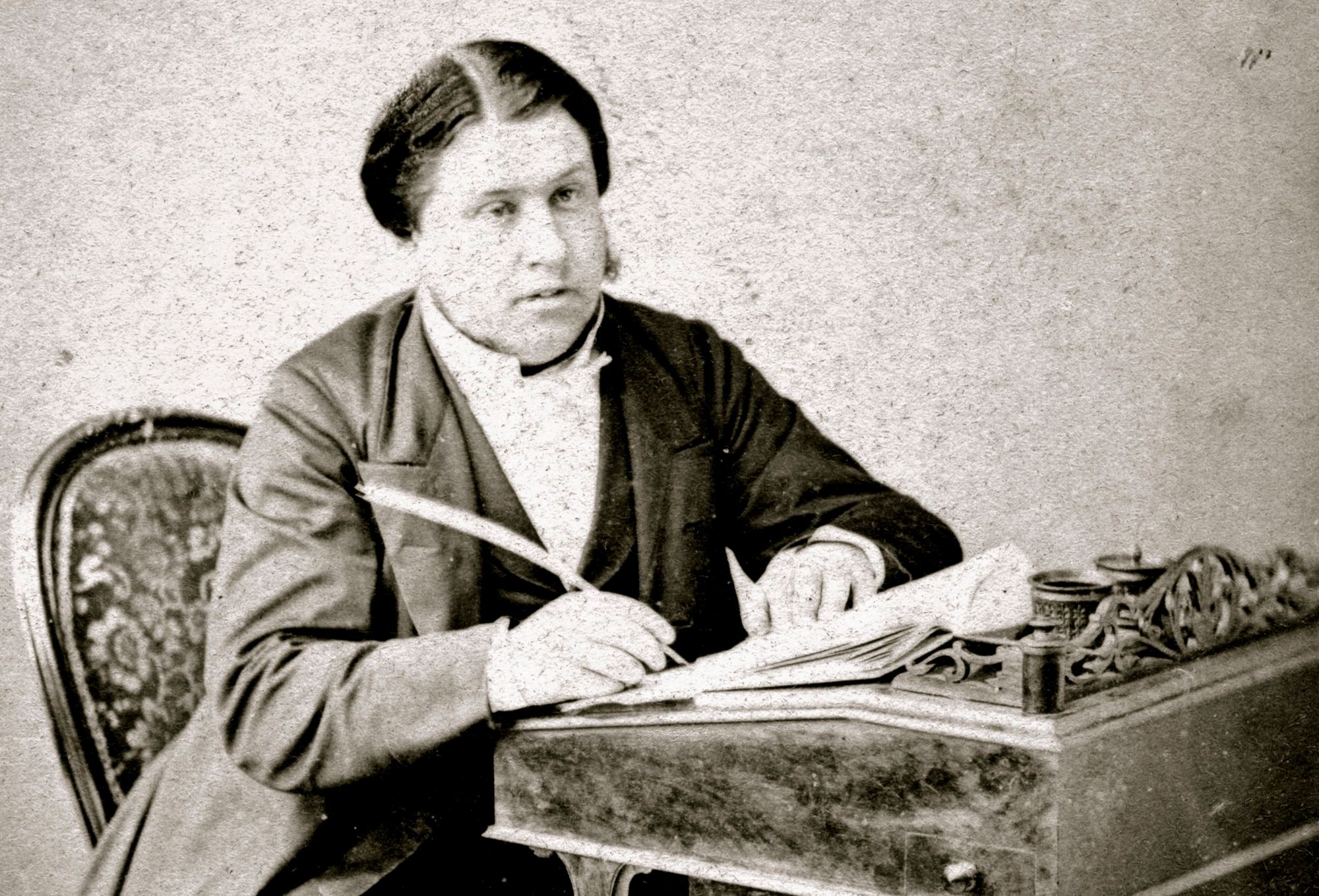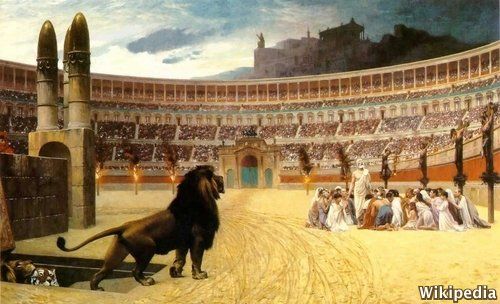
The great motor man, Henry Ford, is believed to have once declared that ‘history is bunk’. The remark was probably not intended to be taken seriously, but its significance lies in the fact that it is so often quoted.
Perhaps it underlies a certain cynicism we have towards the subject. For many, the word ‘history’ dredges up unhappy memories of schooldays. Endless dates, unpronounceable battles, interminable lists of kings and queens, and other oddities of antiquity, so admirably satirised in Sellar and Yeatman’s classic parody, 1066 and all that. Some of us, perhaps the chosen few, were saved from cynicism by dedicated teachers, who made the subject come alive and gave us an abiding passion for the past. It is true; you either love the subject or hate it, but you cannot ignore it.

Lord of history
This is particularly so for the Christian. If we believe that God is sovereign over all, then that must include history. That Eternal Mind contains all that has happened and all that will happen in this world. Every incident however tiny, even the falling of a common sparrow, is known and shaped by the hand of God.
The silver screen’s recent blockbuster, Titanic, reminds us of an awful tragedy. As a magnificent piece of mankind’s majesty cut its way across the ocean, so one of the world’s natural wonders, a mountain of ice, was preparing to meet it. The meeting was unavoidable. We must bow at such a mystery, it was in the control of God who knows all things.
God does not only control all history, but he has a specific purpose in doing so. The great theme of the Bible is essentially historical, for it is the unfolding of God’s mighty work of redeeming mankind. God is working his purpose out with his people, the church of Jesus Christ. In one sense, all history since the beginning of time has been subservient to this overruling cause. This should make all believers keen students of history, and especially of God’s dealings with his chosen people.

Culture shift
To know what God has done in the past is vital to the well-being of the present church, and is a constant theme in Scripture. Psalm 44:1 is an outstanding example. ‘We have heard with our ears, O God, our fathers have told us what you did in their days, in days long ago’. C. H. Spurgeon preached on these words in the revival year of 1859, under the title ‘The story of God’s Mighty Acts’. He used it effectively to stir up his hearers to prayer and action for their day.
If such a call needed to be issued 150 years ago in religious, history-conscious Victorian Britain, how much greater is the need today? In addition to this, we have to do battle with a force possibly even more sinister than the apostasy that confronted Spurgeon.
We are in the process of a great cultural shift in our society, known as Post-Modernism. In essence, this is a pessimistic philosophy of life that rejects the standardised values of the last four hundred years, a period we have come to regard as the modem age of scientific rationalism.
Reinterpreting history
My purpose is not to dwell in any depth on the wider movement, but to consider its implications for the study of history. The Post-Modernist emphasises the subjective interpretation of truth at the expense of accepted objective truth. This can be demonstrated in relation to the facts of history. The individual’s understanding of the past becomes increasingly personalised, tailored to suit his tastes. Facts cease to be facts ‘as we know them’, and instead become arbitrary (and sometimes convenient) selections. You take what you need and reject the rest. The past, we are told, can be reinterpreted to suit the particular individual or group. What is true for you does not have to be true for me. There are no universal truths just individual interpretations.

History, in effect, becomes irrelevant, buried in the shifting sands of subjective interpretation. The implications of this for the evangelical faith are potentially devastating. Our faith is a historic one, built upon a foundation of unchanging fact. It rests upon the real historical person of Jesus Christ, who actually walked on this earth, dwelt among its people, and died on a Roman cross. It declares the historical fact that he rose again, defying death and robbing it of its power.
History and the Bible
The evidence for the resurrection is overwhelming. Many have sought to disprove the resurrection and have utterly failed. The early church was a historical reality. It has been well documented down the centuries and has played an integral part in the development of civilisation as we know it today.
In Old Testament times, God left historical reminders for future generations. A rainbow of promise, the Passover as a memorial meal, twelve stones in the Jordan, and many others. They were God’s history lessons (Joshua 4:21-24). The psalmist was constantly exhorting his readers to consider what God has done. In New Testament times, Peter’s sermon at Pentecost, that produced such amazing results, was largely a re-telling of history. Stephen defended himself by relating Israel’s past. Paul uses events in Israel’s early history as examples to avoid, thus warning his Corinthian readers.

Christians must follow the example of Scripture and look back on their heritage. We must thank God for its lessons, as God’s people have always done.
Two challenges
If we believe these things, then two challenges have to be met. In the first place we must defend our historic faith (Jude 3). This involves challenging the cultural shift concerning the value of history. Christianity cannot be divorced from its historical foundation. We must recognise and oppose all who seek to undermine this basis and replace it with subjectivism.
The second challenge, more positively, is to promote our own knowledge and understanding of the past. To know little or nothing of our history is to be like a man with amnesia. Because he cannot remember the past, he cannot function in the present. It is our duty to take time to study our past, and to pass it on to our children, as Scripture commands. We must take church history out of its dusty academic wrappings and show its wonders to a new generation. We must bring the dry bones to life.

Let people see the hand of God at work through the centuries. Even in this nation God has worked wonders in past times and displayed his majesty. He delivered us from mediaeval papal darkness, raising an army of men and women who lived the gospel, preached the gospel and died for the gospel. Costly freedoms were secured with martyrs’ blood. God gave his people a Bible in their own language, and produced a golden age of preaching.
Revival blessing
Each period of national apostasy has been mercifully countered by God, who raised up preachers and poured down revival blessings. Men and women, led by the Spirit of God, changed the face of our society with reforms. Bibles were exported along with other God-honouring books. Sermons were produced by the million and missionaries sent throughout the world. These are not dry and boring facts, but the evidences of a loving, acting God. The marks of God’s finger are scorched across the pages of our history.
The call to Evangelicals today is to know their past and pass it on! No! History is not bunk. It is vital to our understanding of the present crisis in the church today. Our knowledge of the past, and how we apply that knowledge, will affect our action in the church.




